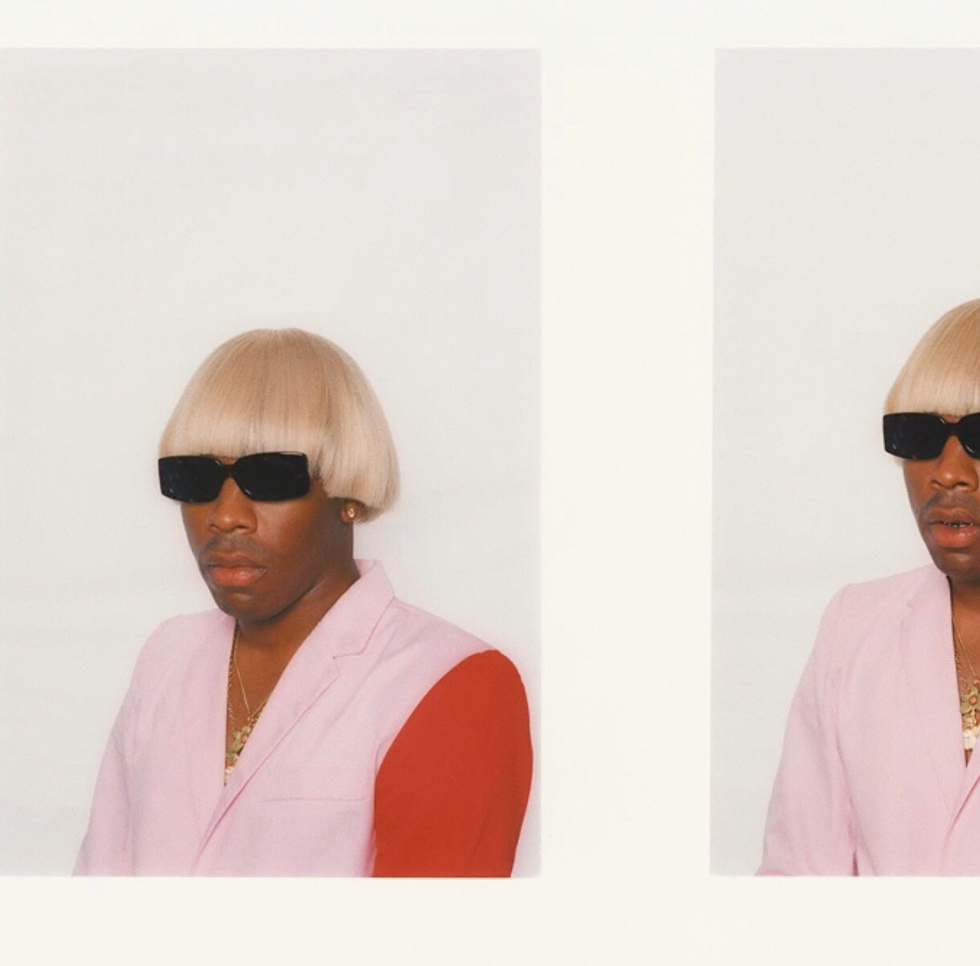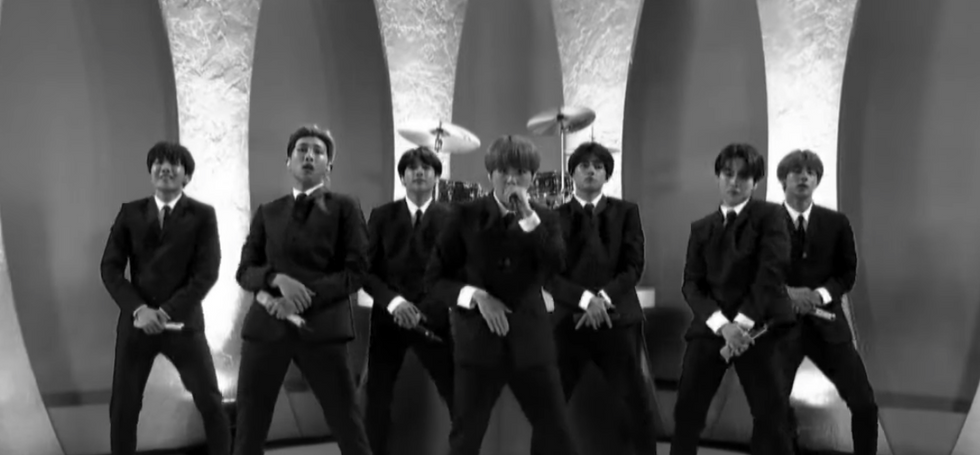"IGOR" Smashed Our Idea of the Artist Behind It
Only a genuine artist could reinvent himself completely and make even his own fans fall in love with a completely new side of him.
It's been just over a couple week's since Tyler, The Creator dropped "IGOR", his latest album that is most definitely open to interpretation and imagination. Perhaps it's because I am not as adamant with social media (I recently decided to give up Instagram and Twitter for a month), but I, for one, wasn't aware of "IGOR" coming out until the night before. I remember when "Flower Boy" came out and I was completely enamored with its light sound and magical summer feel. It was the album of late 2017 and felt like a sunrise after a long night of heavy partying a.k.a. "Cherry Bomb", "Wolf", and "Goblin".
"IGOR" has a raw sound that one could almost compare to an open wound - real, unclean, but something you can't stop looking at, or in this case, listening to. I felt every beat in every song like it were the beat of my own heart, the spark of my own neurons.
I asked Instagram, a few days before deleting it, who had listened to "IGOR" and out of those who had listened, I asked whether or not they had enjoyed the experience of the new record. Of those who voted, 78% listened to the album and 90% of those who did listen said they enjoyed it. Quite literally 90%. Three people also gave me their opinions. Two of them fell in love with the new hype album while the other felt it didn't have enough bangers
I feel like a lot of people either expected the softer, "Flower Boy" Tyler or the old raunchy Tyler which is why I like that he prefaces the album on a post on Instagram asking fans and listeners to not expect anything. Tyler tells them that this album is not "Cherry Bomb" or "Flower Boy". It is its very own experience, shared with you to understand in your own way. It's new, it's real, it's raw, and it is Tyler in his essence. A full album of just him, pouring his soul into sound and asking that you just listen.
In modern society, we all have a problem with just listening. I ask that, if you listen to this album, follow Tyler's instructions. Don't skip songs, don't listen to it in a room full of other people as it plays on a speaker. Put your headphones in and let the music paint a story in your mind.
Feel free to DM me your own interpretations at @stasiapoposki on Instagram! I will check it when I return. All polls for this article and comments will be published under my story highlight titled "pen > sword".


























Don't Ignore The Messy Reality Of Karl Lagerfeld's Legacy By Just Focusing On His Accomplishments
When you tell his story, be sure to tell all of it.
This past Tuesday, fashion icon Karl Lagerfeld of Chanel died in Paris. The industry mourned over the alleged legend, reminiscing in his outspoken thoughts ("sweatpants are a sign of defeat") and his dedication to the art of high-fashion. He has been credited multiple times as saving the infamous brand of Chanel with his innovation as creative director.
Yet, as it so happens with countless other celebrities who pass away, people are tending to look away from the more problematic stances that Lagerfeld took. As Clémence Michallon, a writer for The Independent said, "It's always tempting — and only human — to focus on the positives when speaking of the dead, especially so soon after their passing. Acknowledging some of the less palatable aspects of someone's life at such a time can seem in poor taste, rude, and slightly unfair."
But what are we doing if we ignore every aspect of one's legacy? Are we, perhaps, selectively remembering one whilst promoting the idea that it is alright to make insulting and outrageous comments, for it will all be forgotten within your overall memorial?
In this specific case of Lagerfeld, he was often seen publicly insulting the women species in general, from criticizing curvy women to condemning the #MeToo movement. Though fashion seemed to be an untouchable art in his eyes, women as a whole was a subject that he often tarnished.
It started out as a general criticism of looks. He once called singer Adele "a little too fat" while discussing her singing talents. In regards to Pippa Middleton, he commented that she struggles in beauty and that he didn't like her face, saying, "She should only show her back." He's made comments in regards to curvy women, saying, "No one wants to see curvy women on the catwalk."
Sure, all of this could be written off as a Joan Rivers-esque attitude towards others. You could shrug your shoulders and look the other way. But when the #MeToo movement rose in prominence, where models and other women began to come forward about their sexual harassment and assault, Lagerfeld displayed the true horrors of his narrow-minded outlook.
"If you don't want your pants pulled about, don't become a model! Join a nunnery, there'll always be a place for you in the convent," he said after expressing how "fed up" he was with the movement to Numero Magazine.
Karl Lagerfeld could be regarded as a fashion industry icon just as much as he could be seen as a symbol of the industry's faults. He continued to encourage the objectification of women while exploiting them as models to his own benefits. As a woman myself, I can't help but roll my eyes every time someone idolizes Lagerfeld while completely ignoring every time he had contributed to sexism and misogyny.
While he was an influential artist in the realm of fashion, withholding all of the ugly details of his legacy only contributes to the ignorance of prominent figures and their wrong-doings. It's alright to reflect on his work for the fashion industry, but when you tell his story and legacy, be sure to tell all of it.